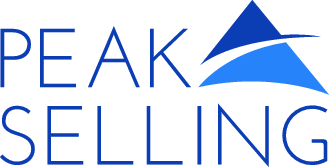The Benefits of Up-selling and Cross-Selling
Posted on 03/01/2007 in Selling Skills
"Customers who buy two or more products or services from you are much more likely to remain customers."
- Carol Kinsey Gorman, Ph.D., author of
The Loyalty Factor, Building Trust in Today's Workplace
Many STAR clients and prospects have expressed strong interest in improving the ability of their entire organization, not just their sales force, to up-sell and cross-sell more effectively. This has been a trend that has spanned all the industries that we service (such as banking, financial services, chemical, manufacturing, business services, technology, and others), and has not just been limited to a few selective industries. If you are not actively engaged in up-selling and cross-selling, you may be missing some excellent opportunities to grow your sales and to build customer loyalty.
This blog will examine the what and why of up-selling and cross-selling. Watch for a future blog where we will address some success factors and how to measure the results of your up-selling and cross-selling.
What is Up-Selling?
The term up-selling has different connotations in different industries, but generally is used to refer to selling the customer a higher-end, larger, more profitable, or more expensive product or service. Often, up-selling is simply exposing the customer to products or services that he or she may not have already considered. The driving force behind your "up-sell" recommendation is to do a better job of satisfying the customer's needs.
A STAR example of up-selling would be when a customer requests one of our training workshops for their outside sales force, we will explore if there are any other individuals who assist in their sales process. If the answer is yes, we will make an up-sell recommendation that these additional people should be included in the workshop, which provides several benefits to the client: it is relatively inexpensive to include a few additional people and, more importantly, now the entire team of employees can participate fully in their sales process.
What is Cross-Selling?
The term cross-selling also has different connotations in different industries, but generally is used to refer to selling the customer an additional product or service. Cross-selling allows you to service any additional needs of the client and decreases the need for your client to consider your competitor's products and services. Cross-selling efforts are rewarded because customer retention increases dramatically when a customer purchases more than one product or service.
A STAR example of cross-selling would be if a customer requests our negotiation workshop, we will often advise them about our 1-on-1 negotiation coaching service. The 1-on-1 negotiation coaching allows us to work closely with any individuals who have an important and upcoming negotiation, and provides that person with some in-depth skills and assistance. Another example of cross-selling for STAR would be when a customer requests a negotiation workshop, we might suggest that participants also attend a web seminar to be held several months after the workshop as a way to reinforce the skills learned during the workshop.
Benefits of Up-Selling and Cross-Selling to You AND the Customer
When done in a consultative manner, up-selling and cross-selling benefit the customer because their needs are better met. This is the most important reason to up-sell and cross-sell. Because the customer’s needs are better satisfied, up-selling and cross-selling help to build customer loyalty. As cited in the quotation at the start of this newsletter, customers who buy 2+ products or services are much more likely to remain customers.
Client satisfaction and loyalty help you as well. Customer attrition goes down, and profits will go up. When done well, up-selling and cross-selling will cause your sales to increase. We also suggest that you measure the results of your up-selling and cross-selling efforts (to be covered in next month's newsletter), which allows you to fine-tune and improve your overall cross-selling efforts.
Learn more by visiting our Essential Selling Skills workshop page.
